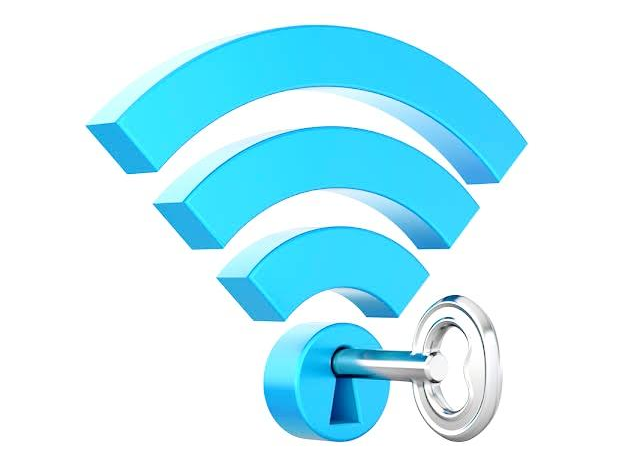
Supermarkets, caffs, airfields, libraries, public transportation, coffee shops, and hostel apartments all have free Wi-Fi.
Millions of people use these networks every day.
According to a recent ITRC study, 3 out of 4 people use free public Wi-Fi.
Utmost people, still, are ignorant that public Wi-Fi is unsafe.
Indeed if signing in requires a word, that doesn’t mean that your online conditioning are secure. For illustration, you may enjoy public Wi-Fi, but hackers do the same. As a result, if you use public Wi-Fi without proper security, you’re putting your online identity and plutocrat at threat.
What are the Troubles of Public WiFi? Theft of particularinformation.Cyber attacks onbusinesses.CryCompletecommunication.To distribute vicioussoftware.Packchanges.Posthijacking.Man in the middle of cyberthreats.How Do
You Stay Safe using Public WiFi?
It doesn’t count if you use public WiFi to open your office point or download a game at Pirate Bay; you should follow safety preventives.
Let’s look at them then
# 1 Use a VPN
The safest way to suds in social networks is to use a VPN. It’s one of the most extensively used technologies to keep people’s information safe while using social networks.
VPNs cipher data flow and give secure communication between customer and garçon.
Internet culprits won’t be suitable to see any data going through the lair, and they won’t be suitable to pierce your information or internet exertion.
Another advantage of VPNs is that they hide your IP address in a different position. So indeed if you’re in Australia physically, your VPN will show that you’re in another country.
#2. Use HTTPS Using Public Wi-Fi
Still, making sure you only visit translated websites will help cover your data from the pitfalls listed over, If you don’t have access to a VPN.
Check the HTTPS protocol at the morning of the website address.
This indicates that the connection between the cybersurfer and the web garçon is translated, which ensures that any data posted on the website is secure from harkening or revision.
In utmost cybersurfers, a padlock icon appears at the morning of the address to indicate that the point is translated.
# 3. Enable Firewall
By enabling firewall, you can help hackers from gaining illegal access to your external system. While the firewall may not give complete security, the setting should always be enabled.
A firewall protects your device from malware by acting as a hedge.
It looks at the network data packets and determines whether they’re safe or not. The firewall will block any dangerous data packets it detects.
A firewall protects your computer or network by limiting certain types of data and guarding your data from attack.
We frequently disable the Windows firewall to avoid spam and annoying announcements and forget about it.
#4. Use Antivirus Using Public Wi-Fi
Antivirus software can cover you while using public Wi-Fi by detecting a vicious program that may foray your system while you’re connected to the network.
Always make sure that theanti-virus program on your device has been upgraded to the rearmost interpretation.
Thus, you’ll admit a warning on your computer screen if there’s a suspicious exertion on your network, the possibility of vicious attacks or vicious software that infects your system via the network.
Once you have entered an instant announcement when cyber culprits are trying to break your security system, you can take applicable action.
#5. Verify Network
Remember that hackers are veritably clever, so it’s stylish to skip and play smart. But, first, check the network name precisely and ask if the communication is true with the company hand.
You can also ask about the provider’s IP address. As mentioned before, culprits frequently produce fake networks, so double check your name to avoid being a victim.
Another thing to consider is whether you really need to set sharing preferences when using the public internet. Of course not!
Thus, once you have vindicated network, disable train sharing. Depending on your operating system, you can disable train sharing with system options or the control panel.
Better Safe Than Forgive!
You may disregard these security tips because you suppose you aren’t browsing unsafe spots on the web.
Still, taking preventative measures is always a good idea, and will insure that you don’t fall into the trap of computer bushwhackers,
. Still, you’ll be an illustration of safe online practices, If you follow these tips.
So, if you want further information about them, let us know in the comment box below. We’ll get back to you with an immediate response.
Access to the Internet is generally not a problem if you’re within the confines of your home — secure, easy to connect to, and not crowded — unless the whole family is streaming Netflix on five different bias. Still, when you go out, the story is different. You can pierce Wi-Fi in further places than ever ahead, which allows you to stay in touch or get a job wherever you are, but getting online isn’t as easy, or secure, as it’s for your home. network.
The public Wi-Fi network is naturally less secure than your own, private, because you don’t know who set it up, or who differently you’re connected to. Immaculately, you’ll noway need to use it; it’s better to use your smartphone as a hotspot rather. But in the doubtful event that this happens or not, you can still limit implicit damage from public Wi-Fi with just a many simple way.
◾Know Who You Can Trust Using Public Wi-Fi
This is related to the former point, but where possible stick to known networks, similar as Starbucks. These Wi-Fi networks are presumably less suspicious because the people and companies that use them are formerly earning plutocrat from you.
There’s no completely secure Wi-Fi social network — that depends on who owns it and who provides it — but in terms of limited security, known prices frequently outpace that arbitrary Wi-Fi public network from your phone. in a shopping boardwalk, or a network used by a third party that you have noway heard of. This may be legal, but if anyone passing by can’t communicate for free, what are the benefits for people who use the network? How do they make plutocrat? There are no hard or fast rules to apply, but using a little mind doesn’t hurt.
Still, stick to as numerous Wi-Fi community networks as possible, If you can. In a new megacity, connect to a Wi-Fi store or coffee shop that you have used before, forexample.However, you’re more likely to encounter someone who doesn’t handle your data and browse as precisely as possible, If you register fresh networks.
◾Stick to HTTPS
For the once many weeks, Google Chrome 7 7 7 if the point you’re visiting uses an unencrypted HTTP connection rather of HTTPS encryption by codifying the word “ Not Secure” Hear to that warning, especially on public Wi-Fi. When browsing HTTPS, people are on the same Wi-Fi network as you can’t overlook the data that flows between you and the website garçon you’re connecting to. Via HTTP? It’s easier for them to watch what you do.






